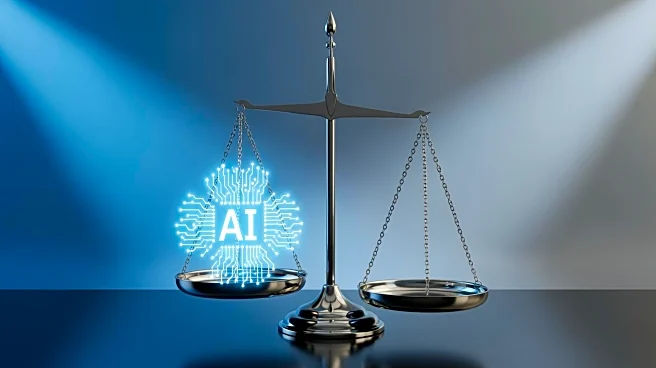What's Happening?
Notion, a startup valued at $10 billion, is incorporating artificial intelligence into its operations to boost efficiency. Simon Last, a cofounder of Notion, is leveraging AI to assist in coding tasks, positioning himself as a 'super individual contributor.' The company is developing an AI 'agent' that autonomously manages tasks in the background. Engineers at Notion utilize various AI models, such as Claude, to aid in drafting and debugging code, which allows human programmers to concentrate on testing and production. This initiative is part of a broader trend where generative AI is used to streamline operations within startups, aiming to save time, although it often leads to increased work rather than leisure.
Why It's Important?
The integration of AI into startup operations signifies a shift in how businesses approach efficiency and productivity. By automating routine tasks, companies like Notion can potentially reduce operational costs and increase output. This trend could lead to a competitive advantage for startups that effectively harness AI technologies, impacting the broader business landscape. However, the increased reliance on AI also raises questions about job displacement and the need for new skill sets among workers. As AI becomes more prevalent, industries may need to adapt to these changes, influencing employment patterns and economic structures.
What's Next?
As Notion continues to develop its AI capabilities, the company may explore further applications of AI in other areas of its operations. This could include expanding the role of AI agents to handle more complex tasks or integrating AI into customer-facing services. The success of these initiatives could encourage other startups to adopt similar strategies, potentially leading to widespread changes in how startups operate. Additionally, there may be discussions around the ethical implications of AI autonomy and the need for regulatory frameworks to ensure responsible AI use.
Beyond the Headlines
The use of AI in startups like Notion could have long-term implications for the tech industry, including shifts in how software development is approached. The concept of AI as a 'super individual contributor' challenges traditional roles and may lead to new organizational structures. Furthermore, the development of autonomous AI agents raises questions about accountability and decision-making processes within companies. As AI continues to evolve, these factors could influence cultural and ethical norms in the workplace.









